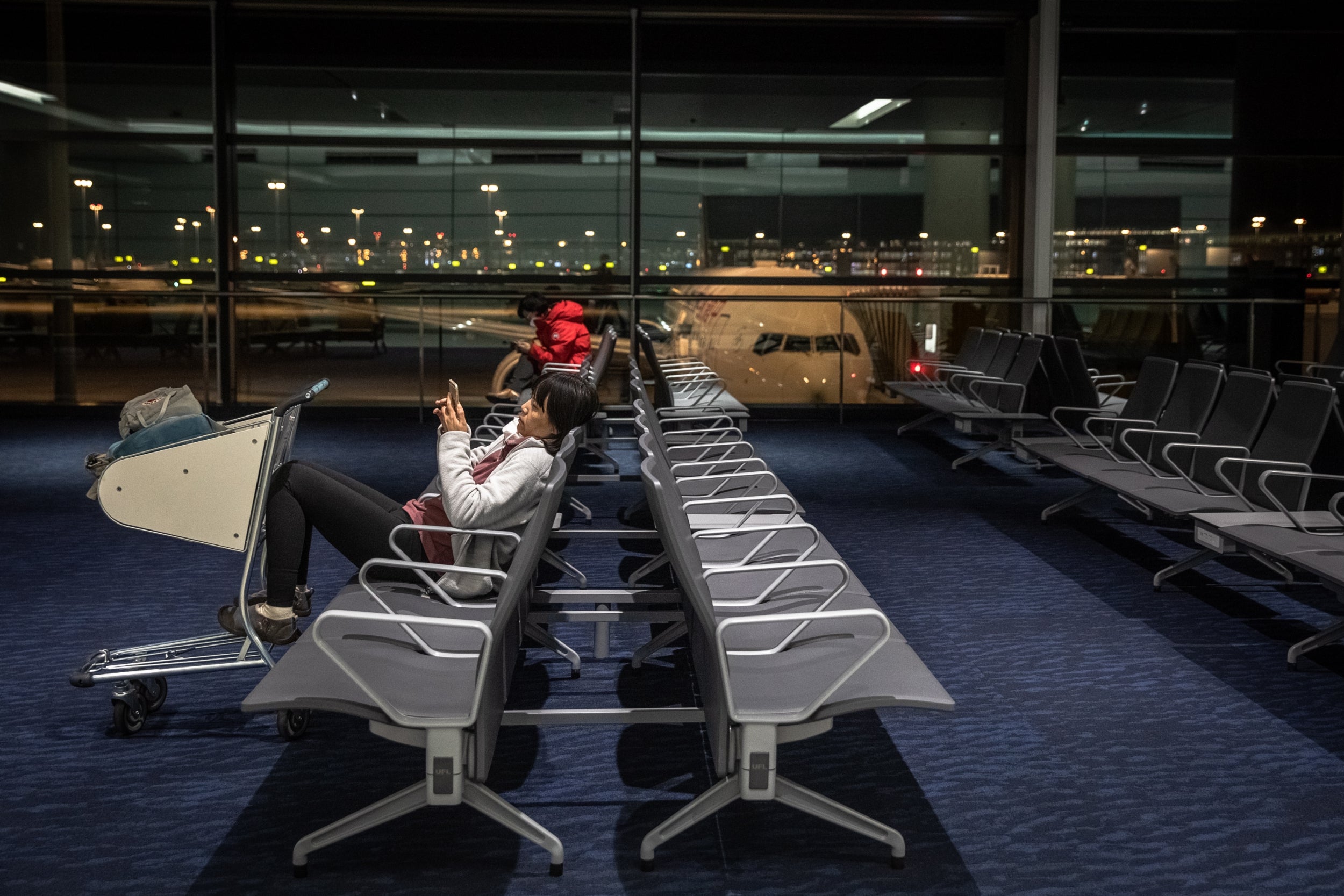Coronavirus could cost airline industry £87bn in 2020
The previous estimate was $29.3bn (£22.68bn) in terms of lost revenue

Coronavirus could cost the airline industry as much as $113bn (£87.47bn) this year – almost quadruple the previous estimates from International Air Transport Association (Iata).
The industry body had previously estimated that the deadly respiratory virus would cost the industry $29.3bn (£22.68bn) in terms of lost revenue.
The previous estimate, issued by Iata on 20 February 2020, was based on a scenario where the impact of coronavirus would be “largely confined to markets associated with China”.
With the virus now in 80 countries around the world, its impact is already being felt elsewhere.
In an updated analysis released on 5 March 2020, Iata said that there are now two possible scenarios.
Scenario 1: Limited spread
In its best case scenario, based on markets with 100 or more confirmed cases of coronavirus, Iata estimates worldwide revenue loss would add up to the equivalent of $63bn (£48.77bn).
Most of this loss would be in China, with Iata predicting that it will account for $22bn (£17.03bn) of losses, but markets associated with Asia as a whole will be impacted.
There would be a significant fall in passenger numbers across the board, with Italy being the worst affected – Iata predicts that it will see a 24 per cent drop in passenger numbers.
This is followed by China (23 per cent), Iran (16 per cent), South Korea (14 per cent), Japan (12 per cent), Singapore (10 per cent), France (10 per cent) and Germany (10 per cent).
Excluding China, Japan, Singapore and South Korea, Asia would see an 11 per cent drop in passenger numbers.
And in Europe, excluding Italy, France and Germany, there would be a 7 per cent drop.
For the Middle East, excluding Iran, there would be a 7 per cent fall.
Scenario 2: Extensive spread
The second scenario is based on markets that have 10 or more confirmed cases of coronavirus.
In this case, Iata estimates that worldwide revenue losses for the airline industry could be as much as $113bn (£87.47bn) this year.
Financially-speaking, this “would be on a scale equivalent to what the industry experienced in the Global Financial Crisis,” according to Iata.
The heaviest losses would be felt in Australia, China, Japan, Malaysia, Singapore, South Korea, Thailand and Vietnam, which together could face losses of as much as $49.7bn (£38.47bn) through a 23 per cent drop in passenger numbers.
Austria, France, Italy, Germany, Netherlands, Norway, Spain, Switzerland, Sweden and the United Kingdom will be the next worst hit.
Iata predicts that, combined, they could face a 24 per cent drop in passenger numbers, which would equate to $37.3bn (£28.87bn) in terms of revenue.
Bahrain, Iraq, Iran, Kuwait, Lebanon and the United Arab Emirates would also see a fall in passenger numbers of 23 per cent, with this equating to $4.9bn (£3.79bn) in lost revenue.
Canada and the US would see a 10 per cent drop in passenger numbers, with a revenue loss of $21.1bn (£16.33bn).

Alexandre de Juniac, Iata’s director general and CEO, said: “The turn of events as a result of COVID-19 is almost without precedent. In little over two months, the industry’s prospects in much of the world have taken a dramatic turn for the worse. It is unclear how the virus will develop, but whether we see the impact contained to a few markets and a $63bn revenue loss, or a broader impact leading to a $113bn loss of revenue, this is a crisis.
“Many airlines are cutting capacity and taking emergency measures to reduce costs. Governments must take note. Airlines are doing their best to stay afloat as they perform the vital task of linking the world’s economies. As governments look to stimulus measures, the airline industry will need consideration for relief on taxes, charges and slot allocation. These are extraordinary times.”
Join our commenting forum
Join thought-provoking conversations, follow other Independent readers and see their replies
Comments
Bookmark popover
Removed from bookmarks